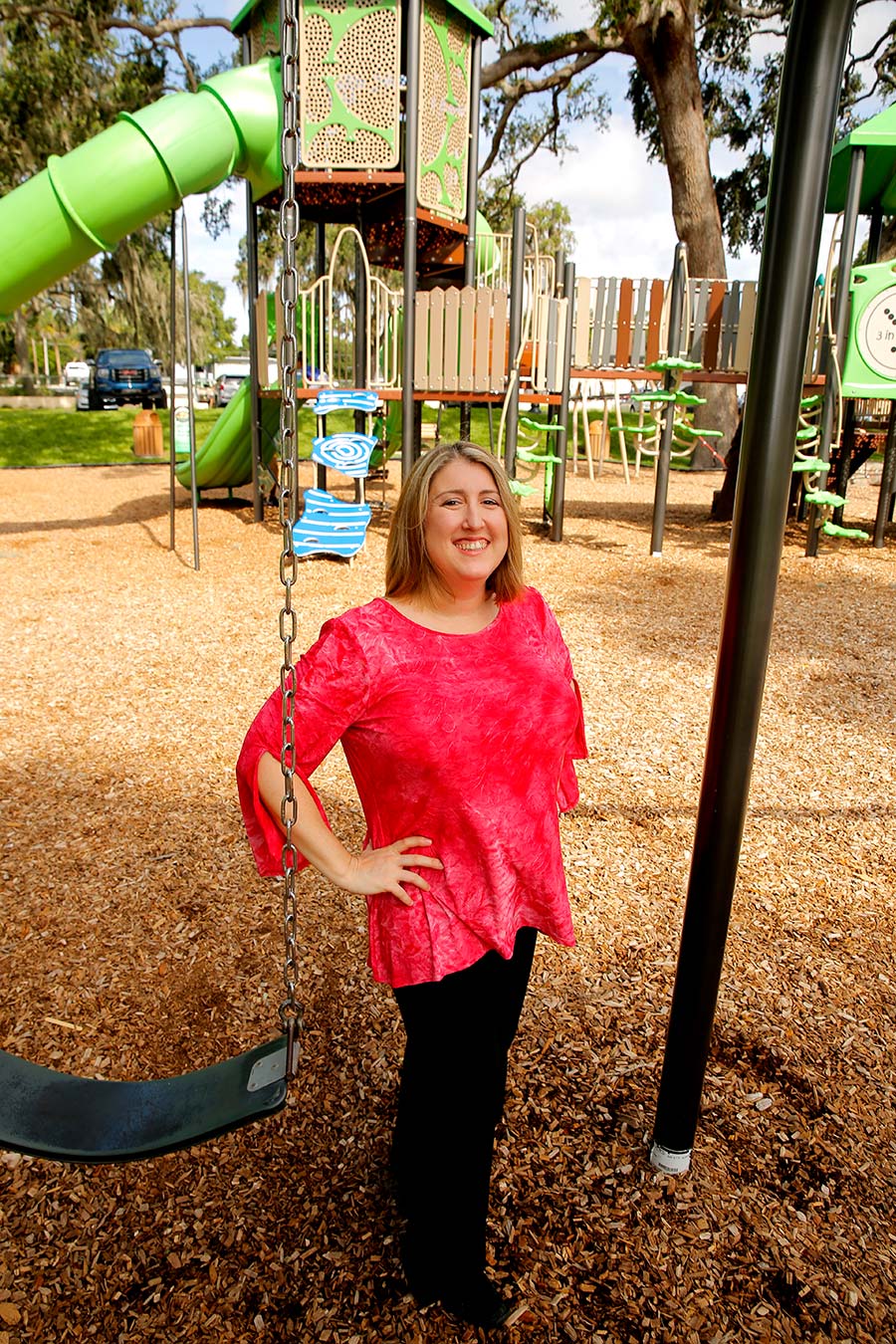Bringing recess into play
Writer: James Combs // Photo: Fred Lopez
Dr. Kristi Burns is a staunch advocate for recess in schools.
Thanks to excessive time spent in the classroom, many of Lake County’s elementary school students have lost their marbles.
They’ve also lost their hopscotch, jacks, and duck-duck-goose.
That’s because federal education laws such as No Child Left Behind and Common Core—which emphasize test scores—prompted school administrators to scale back or eliminate recess.
The dwindling role recess plays in local schools surprised Dr. Kristi Burns, who moved from California to Eustis in 2013. Much to her dismay, recess was eliminated in 2014 at the Lake County school where her son, Xander, was a third-grade student.
“In California, he had three recesses every day,” says Dr. Burns, a 1995 graduate of Eustis High School who earned a doctorate in biochemistry from Georgia Institute of Technology. “Now, he was attending a school that did not even have recess for kindergarten students.”
Dr. Burns turned her frustration into activism. It started with picketing outside local elementary schools, then spearheading a social media networking group called Lake County Healthy Schools. She also made recess a focal point of her campaign when she successfully ran for the Lake County School Board District 2 seat in 2016.
Now, as part of a statewide group called Recess for All Florida Students, Dr. Burns and other “recess moms,” as they are affectionately called, have lobbied Tallahassee lawmakers to pass a mandatory requirement that elementary schoolchildren receive 20 minutes of recess each day. Florida Gov. Rick Scott signed the bill, HB 7069, in June.
The passage of the bill is welcome news to Dr. Burns and hordes of other parents who feel maximizing the amount of classroom time for test preparation can be detrimental.
“It can lead to cognitive interference,” she says. “After a while their brains are overloaded, and they need a break to unwind and de-stress. Then they will be able to learn again. More is not effective.”
She also feels that, contrary to popular belief, education does not end once recess begins. After all, some of life’s most valuable lessons can be learned during recess—sharing, losing gracefully, teamwork, and getting along with others.
Her claims are backed by research conducted by organizations such as the American Academy of Pediatrics and the American Association for the Child’s Right to Play, which tout the cognitive, social, and physical benefits of recess.
“Lots of research supports recess,” she says. “I’ve never seen any research that is against recess. It is great for motor development, character building, and intellectual stimulation.”

